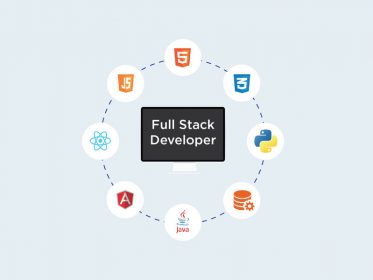Full Stack Engineer Course

About Course
A Full Stack Engineer is a developer who is proficient in both front-end and back-end technologies, capable of working on the entire web development stack. Full Stack Engineer programs typically aim to provide comprehensive training in a variety of technologies and tools commonly used in web development. Some key components that might be included in such a program are:
- Front-End Development: Learning HTML, CSS, JavaScript, and various front-end frameworks such as React, Angular, or Vue.js.
- Back-End Development: Learning server-side programming languages like Python, JavaScript (Node.js), Java, as well as frameworks like , Django.
- Databases: Understanding and working with relational databases (e.g., MySQL) and NoSQL databases (e.g., MongoDB).
- Version Control: Learning how to use version control systems like Git to manage codebase changes efficiently.
- API Development: Understanding how to design and build RESTful APIs to facilitate communication between front-end and back-end systems.
- Deployment and Hosting: Learning how to deploy web applications on various platforms like AWS, Heroku, or other cloud providers.
- Testing and Debugging: Understanding testing methodologies and tools for both front-end and back-end components.
- Security: Learning about web application security and best practices to prevent common vulnerabilities.
- User Experience (UX): Gaining an understanding of UX principles to create user-friendly interfaces and experiences.
- Project Management: Learning project management methodologies and tools to collaborate effectively with team members.
Keep in mind that the actual content and depth of a Full Stack Engineer program may vary from one institution or online platform to another. If you are interested in pursuing such a program, it’s essential to research specific institutions or platforms offering it and carefully review their curriculum to ensure it aligns with your learning goals and the technologies you wish to master.
Course Content
Introduction to Web Development
-
Overview of web technologies and architecture
-
Setting up a development environment (IDE, Node.js, etc.)
-
Introduction to HTML, CSS, and JavaScript

